For some reason, I haven’t taken any pictures of him. I have no idea why. There was just something in his eyes. It wasn’t like I could tell he didn’t want me to photograph him. It was something else. Could I tell he was sad? Or was he just very insightful? Maybe he was just too serious? I don’t know. Something was stopping me, and I couldn’t dare to turn my camera towards him. On day two, right before our departure, I got to talk to him. I gave him a pin of a Canadian flag as a gift. A gifts I received from a Canadian lady Carol Sereda, she help a lot for the project and for Ukrainian wounded soldiers.
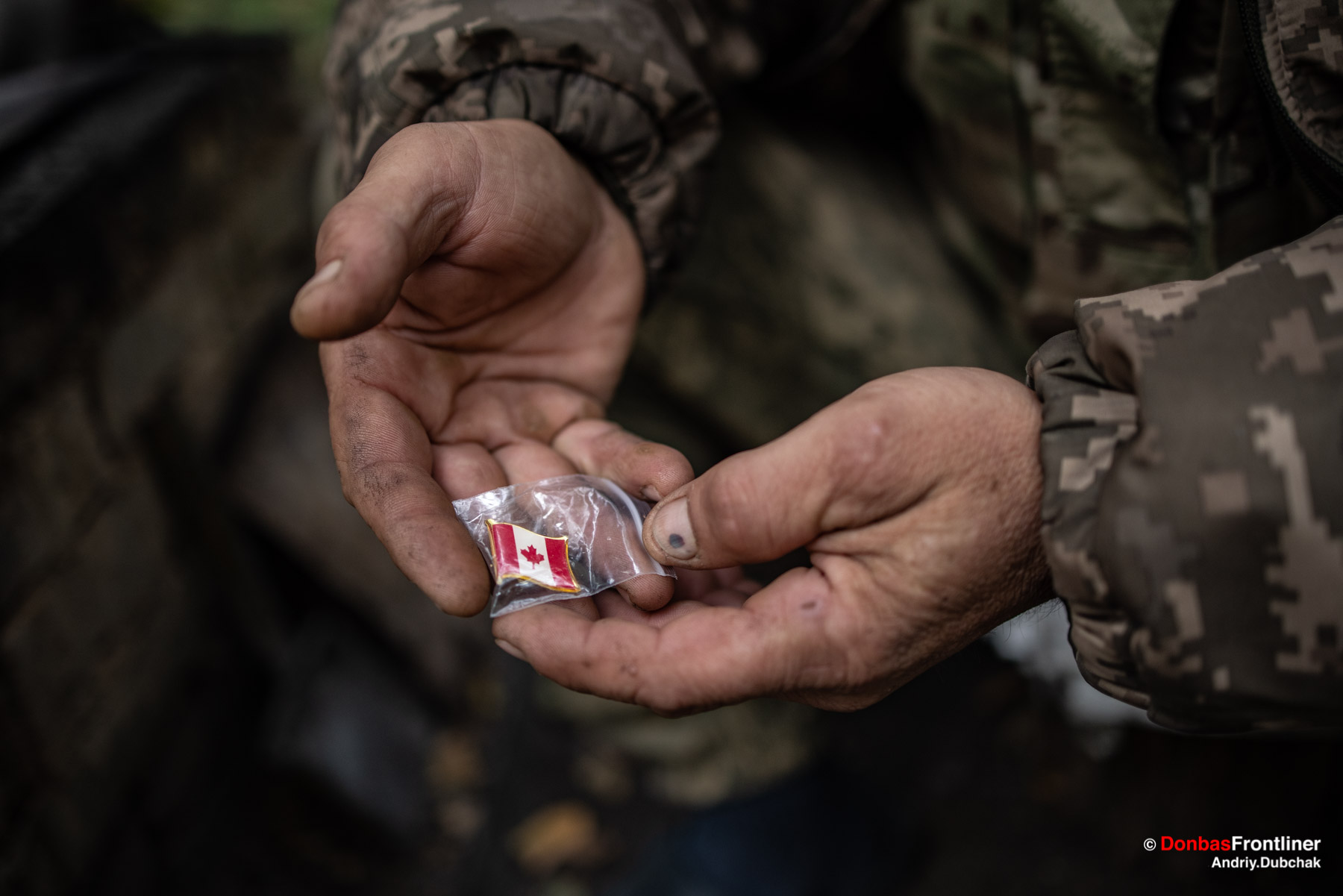
It was in the morning. However, the sun has already risen. We were sitting next to a small wood furnace, somewhere deep in the thick brush of the combat positions. That furnace was not only used to make food, it also served as a designated smoke area and a general hangout area. People seem to gravitate towards fire and heat.
He was sitting there, lost in his own thoughts, as he fidgeted the small red maple leaf pin in his callous hands.
All of it looked very strange to me. I thought how out-of-place the Canadian flag seemed here. Canada is such an advanced country. On Instagram photos, all of their service members look picture perfect. They are always fit and clean. They have numerous badges and medals, and they almost always boast a bright smile. And here there was this older man right next to me. He wasn’t smiling. His uniform was not fitted. The gray hair on his head was quite obviously cut by one of his brothers in arms. The bags under his eyes were very prominent. But it wasn’t because of alcohol, most likely it was because of his kidneys.
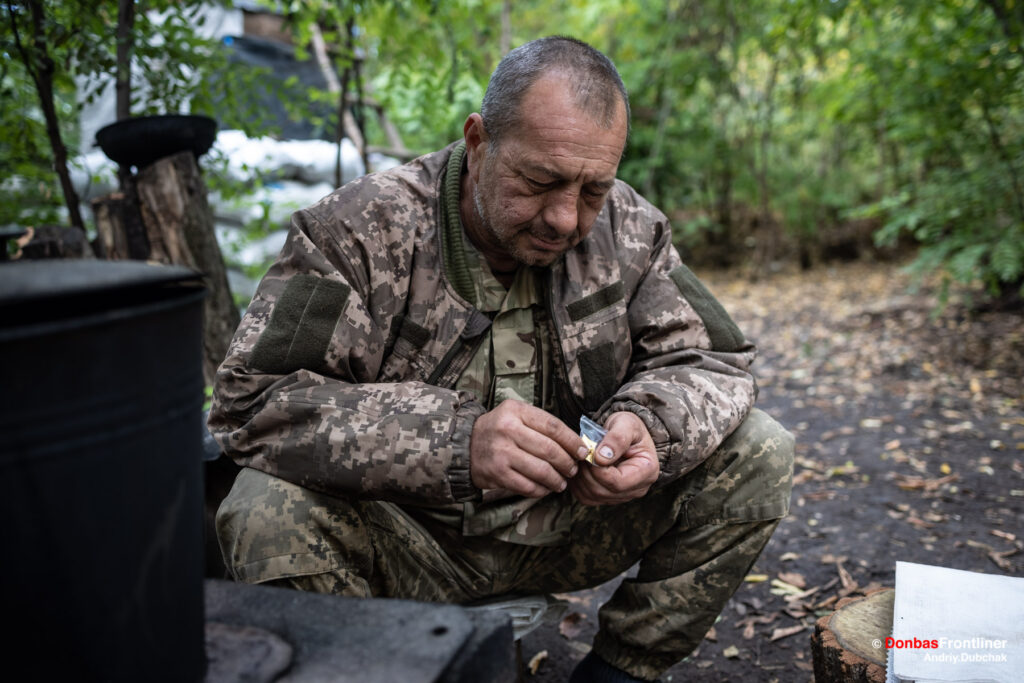
He was sitting there, fidgeting with the pin, and I had no idea what to ask him.
– Have you been fighting in the war for a while?
– Since 2014.
– How did you join the force?
– I was mobilized.
– Which unit were you stationed with?
– The 3rd SOF regiment.
– Wow!…
My eyebrows gave away how surprised I was. The 3rd SOF regiment is an elite unit. But for him… to be stationed there? It did not make any sense.
– So you are with the Special Operation Forces?
– Nah. I worked as a security guard at the SOF recruitment center. I guarded their barracks and depots.
Aha! A security guard of a military unit. This made a lot more sense.
– Where did you participate in combat?
– At the DIA.
The picture I painted in my head instantly started to crumble.
– You mean… The Donetsk International Airport?
– Yeah.
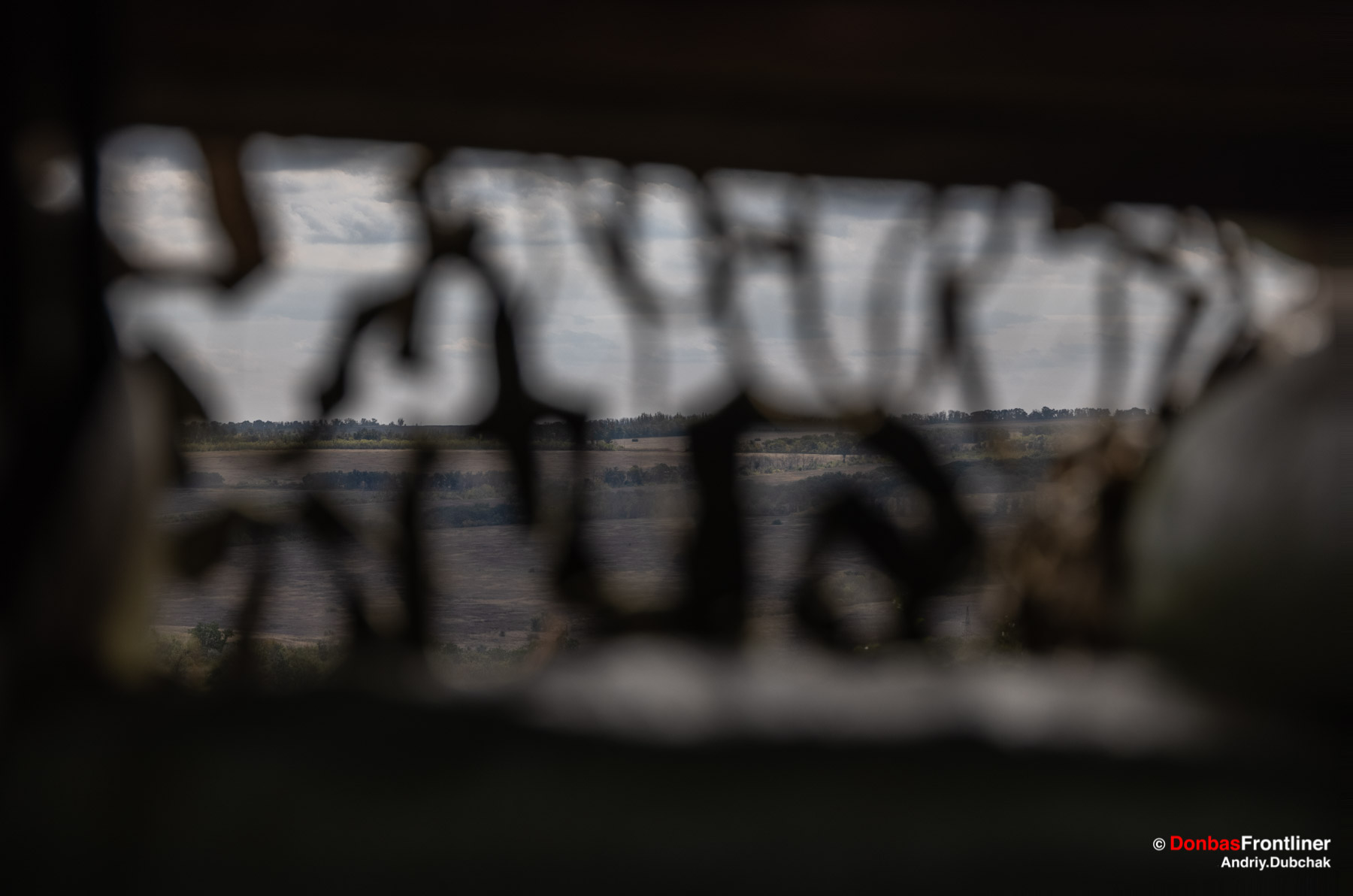
I was just staring at him in awe. I knew so much about the DIA operation because a while ago I helped create the book «AD 242» (HELL 242). I couldn’t imagine him being there.
– But how did you end up there?
– I was mobilized. They gave a weapon. And in a week we were in the ATO zone. When we got there, they said they needed people who volunteered to go to the DIA. So my buddy and I agreed to go.
– How long were you there for?
– Twenty-two days. In the old terminal. Many of my friends were killed during that time.
Both of us sat there quietly for a while. Then we talked about the Airport. About his memories. About how drugged local mercenaries would attack their positions standing fully upright. About the assault operations of the Russian SOF. About tank shellings.
It turns out that he has never told any of it to a journalist. He did not want to. But he told all of it to us. Albeit off camera.
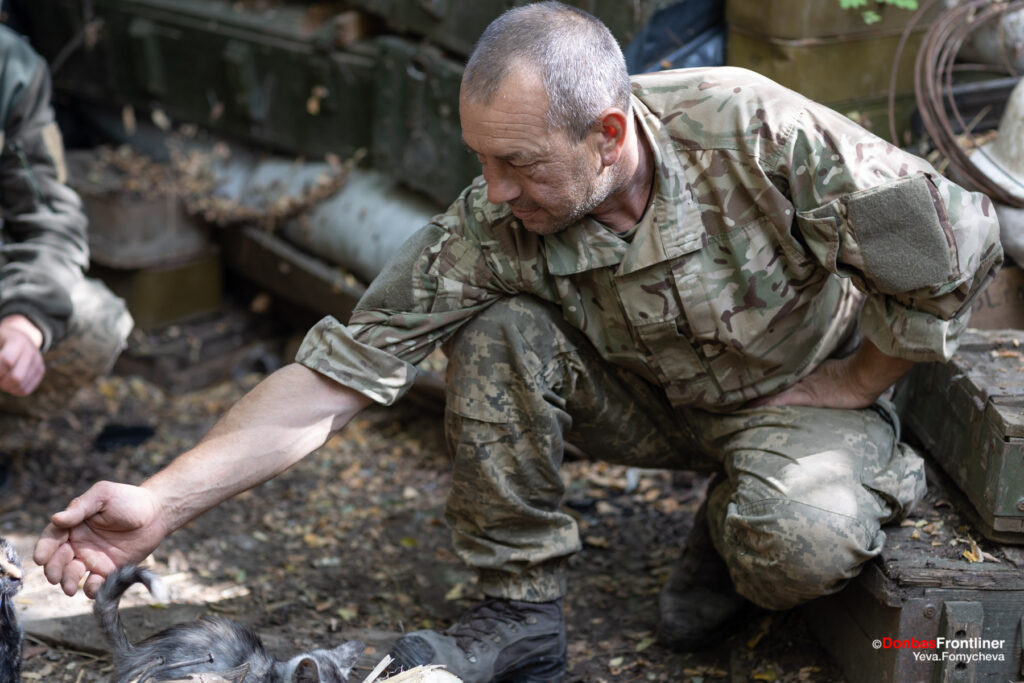
– And after the mobilization period was over did you continue to fight?
– No. I was at home. I signed the contract in the spring of this year.
– But why?
– Well, Putin was concentrating forces at our border, so I decided it was time to go.
His name was Valeriy.
We smoked another cigarette each before my team and I left. And the old, gray-haired DIA defender walked on through the trenches because it was time for him to be on duty…
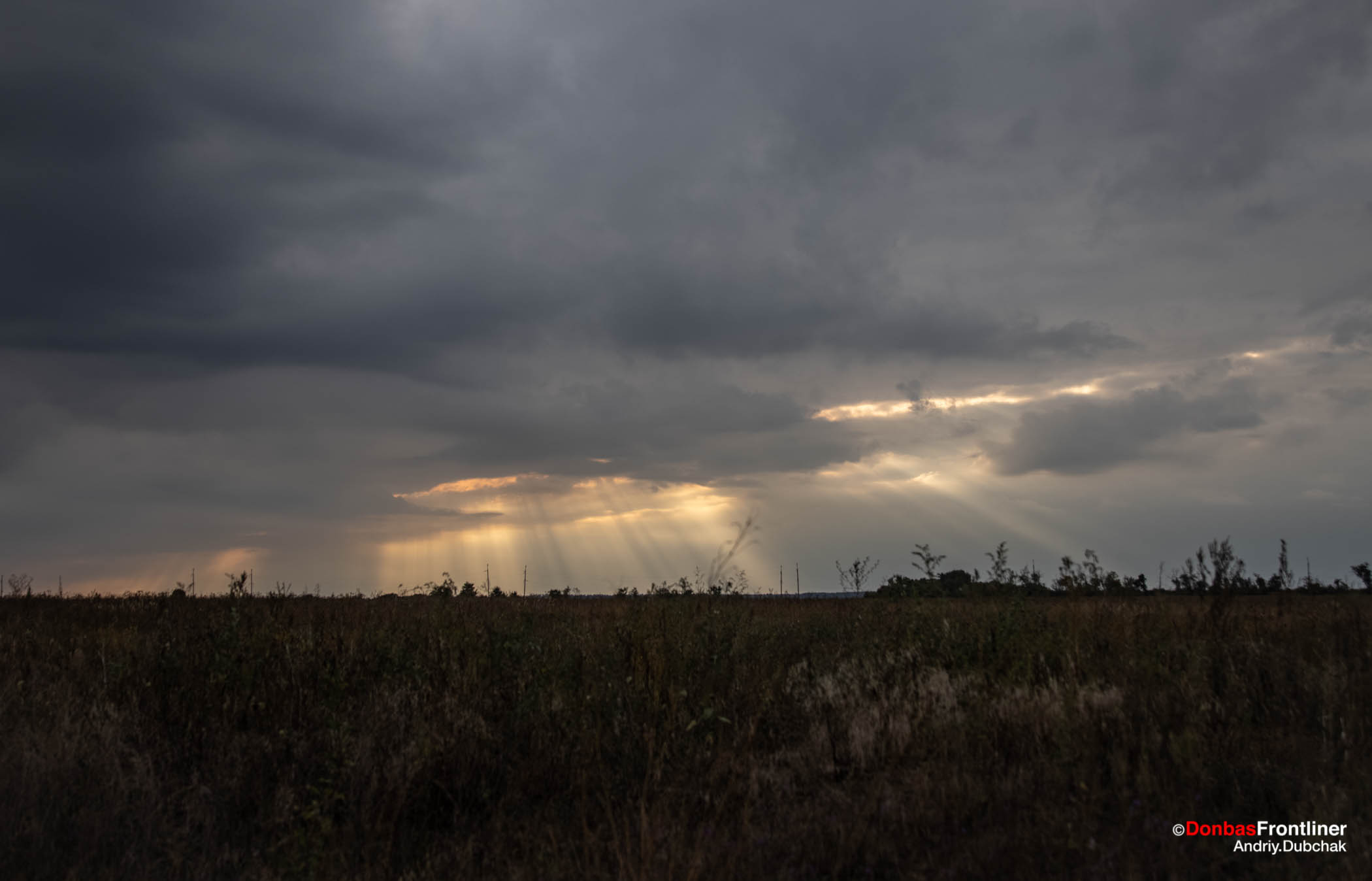
Andriy Dubchak. Fall of 2021. Year 8 of the Russian-Ukrainian war.
Support Donbas Frontliner on Patreon or Spilnokosht!


